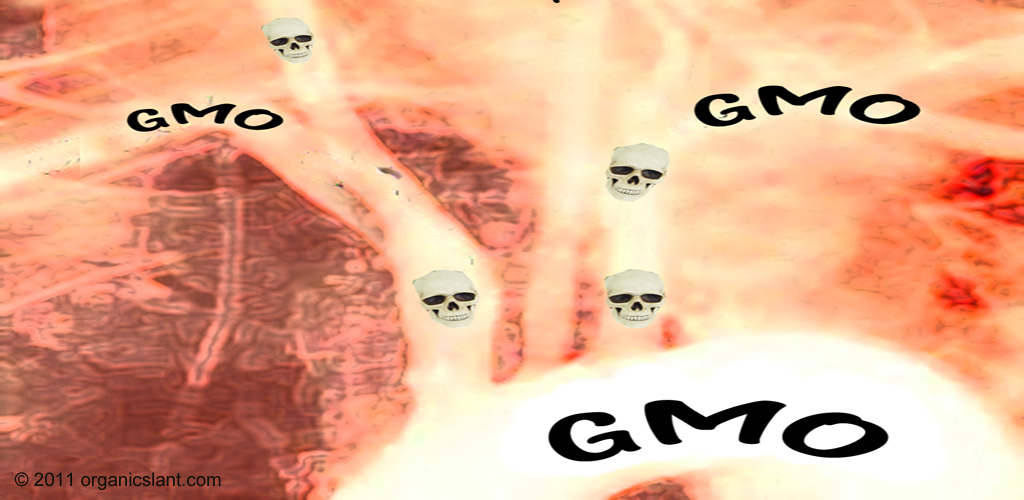In the recent study, Scientists at the Department of Obstetrics and Gynecology, at the University of Sherbrooke Hospital Centre in Quebec, Canada, found Bt toxin, a component of certain genetically-modified (GM) crops, in human blood samples for the first time.
Set to be published in the peer-reviewed journal Reproductive Toxicology the new study shreds the false notion that Bt is broken down by the digestive system, and instead shows that the toxin definitively persists in the bloodstream.
Fresh doubts have arisen about the safety of genetically modified crops, with a new study reporting presence of Bt toxin, used widely in GM crops, in human blood for the first time.
Genetically modified crops include genes extracted from bacteria to make them resistant to pest attacks.
These genes make crops toxic to pests but are claimed to pose no danger to the environment and human health. Genetically modified brinjal, whose commercial release was stopped a year ago, has a toxin derived from a soil bacterium called Bacillus thuringiensis (Bt).
Till now, scientists and multinational corporations promoting GM crops have maintained that Bt toxin poses no danger human health as the protein breaks down in the human gut. But the presence of this toxin in human blood shows that this does not happen.
Scientists from the University of Sherbrooke, Canada, have detected the insecticidal protein, Cry1AB, circulating in the blood of pregnant as well as non-pregnant women.
They have also detected the toxin in fetal blood, implying it could pass on to the next generation. The research paper has been peer-reviewed and accepted for publication in the Journal Reproductive Toxicology. The study covered 30 pregnant women and 39 women who had come for tubectomy at the Centre Hospitalier Univeritaire de Sherbrooke (CHUS) in Quebec.
None of them had worked or lived with a spouse working in contact with pesticides.
They were all consuming typical Canadian diet that included GM foods such as soybeans, corn and potatoes. Blood samples were taken before delivery for pregant women and at tubal ligation for non-pregnant women. Umbilical cord blood sampling was done after birth.
Cry1Ab toxin was detected in 93 percent and 80 percent of maternal and fetal blood samples, respectively and in 69 percent of tested blood samples from non-pregnant women. Earlier studies has found trace amounts of the Cry1Ab toxin in gastrointestinal contents of livestock fed on GM corn. This gave rise to fears that the toxins may not be effectively eliminated in humans and there may be a high risk of exposure through consumption of contaminated meat.
“Generated data will help regulatory agencies responsible for the protection of human health to make better decisions”, noted researchers Aziz Aris and Samuel Lablanc.
To their knowledge, this is the first study to highlight the presence of pesticides-associated genetically modified foods in maternal, fetal and nonpregnant women’s blood. 3-MPPA and Cry1Ab toxin are clearly detectable and appear to cross the placenta to the fetus.
Given the potential toxicity of these environmental pollutants and the fragility of the foetus, more studies are needed, particularly those using the placental transfer approach, they added Experts have warned of serious implications for India. Cottonseed oil is made from seeds of genetically modified cotton and thus Bt toxin may have already entered the food chain in India.
Bt toxin is widely used in genetically modified crops. Everyone should avoid GMO’s, now it seems especially pregnant women should avoid them also. Today, obstetric-gynecological disorders that are associated with environmental chemicals are not known. This may involve perinatal complications (i.e. abortion, prematurity, intrauterine growth restrition and preeclampsia) and reproductive disorders (i.e. infertility, endometriosis and gynecological cancer).
Our children are our future. The companies that make this genetically modified food don’t care at all about our children, all they care about is profit. Avoid ALL GMOs, especially if your pregnant. It will be too late for our children, 10 years from now they prove the studies right. Your children are to precious to take that type of gamble. SAY NO TO GMO!

 Spray Foam Insulation: Energy Hero or Cancer Culprit?
Spray Foam Insulation: Energy Hero or Cancer Culprit? Blood Sugar Stability the Organic Way: Low-Glycemic Foods and Meal Ideas
Blood Sugar Stability the Organic Way: Low-Glycemic Foods and Meal Ideas How to Build a Fully Organic Pantry on a Budget: Essentials for Beginners
How to Build a Fully Organic Pantry on a Budget: Essentials for Beginners 10 Nutrient-Dense Organic Foods to Boost Your Energy Without Caffeine
10 Nutrient-Dense Organic Foods to Boost Your Energy Without Caffeine